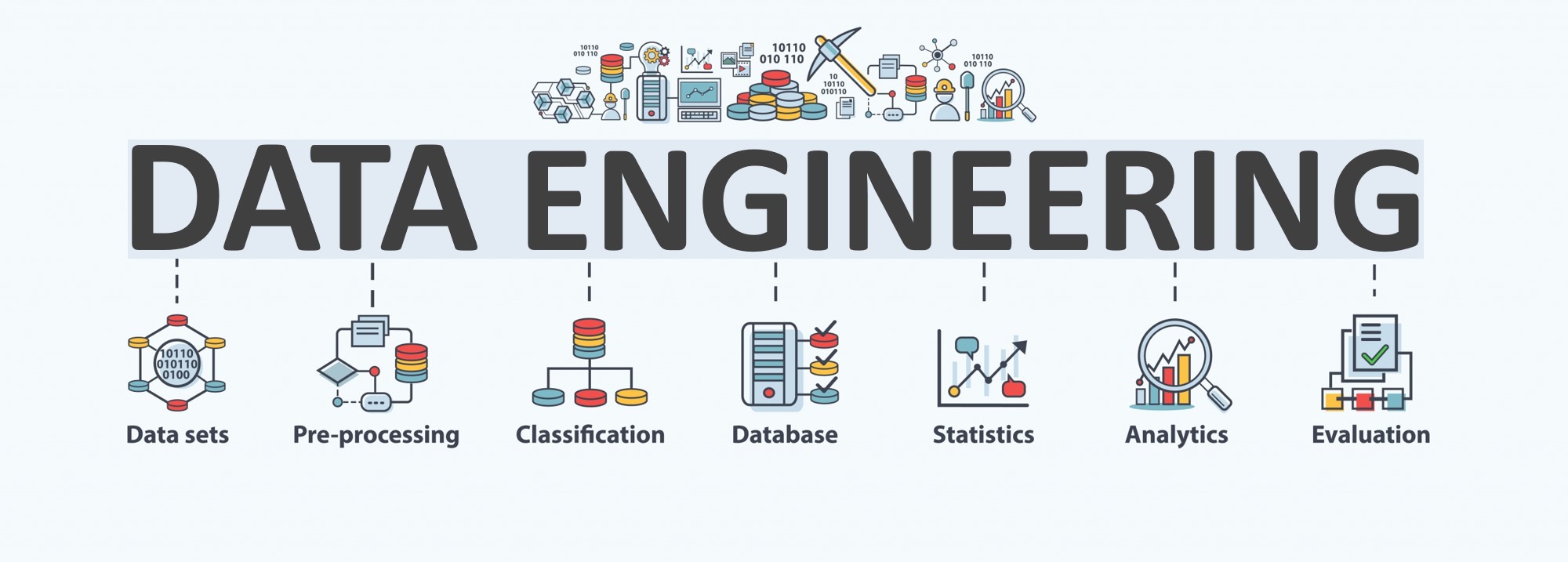Data Engineering: Building the Foundation for Data Analytics and Business Intelligence
Data engineering is a crucial discipline within the broader field of data management, focusing on the practical application of engineering principles to the design, development, and maintenance of data architecture, infrastructure, and tools. It plays a pivotal role in constructing the robust foundation upon which data analytics, machine learning, and business intelligence solutions rely.
1. Introduction to Data Engineering:
Data engineering is the backbone of any successful data-driven initiative. It involves the processes, tools, and techniques for collecting, storing, and processing data efficiently. While data scientists and analysts focus on extracting insights from data, data engineers are responsible for ensuring that the right data is available, in the right format, and at the right time.
2. Data Collection and Ingestion:
The data engineering journey begins with the collection and ingestion of data from various sources. This includes databases, APIs, streaming platforms, logs, and external data feeds. Data engineers design and implement processes to extract, transform, and load (ETL) data into a central repository, making it accessible for downstream analytics. The efficiency of this process impacts the timeliness and accuracy of analytical insights.
3. Data Storage:
Data engineers make critical decisions about how and where to store data. This involves selecting appropriate storage systems based on the nature of the data and the requirements of the analytics use cases. Common storage solutions include relational databases, NoSQL databases, data warehouses, and data lakes. Each has its strengths and weaknesses, and data engineers must align storage choices with the organization’s goals and data characteristics.
4. Data Processing:
Once data is collected and stored, it often requires processing to transform it into a usable format. Data engineering involves designing and implementing data processing pipelines that clean, enrich, and aggregate data. This step is vital for ensuring that the data is accurate, consistent, and aligned with the analytical needs of the organization. Technologies such as Apache Spark and Apache Flink are commonly used for large-scale data processing.
5. Data Modeling and Schema Design:
Data engineers design data models and schemas that define the structure of the data. This includes decisions about how data entities relate to each other, the constraints on the data, and the format in which it is stored. Well-designed data models enhance query performance, simplify data maintenance, and contribute to the overall efficiency of the data system.
6. Data Quality and Governance:
Maintaining data quality and governance is a continuous challenge in the realm of data engineering. Data engineers implement processes to monitor and ensure data quality, including validation checks, error handling, and data profiling. They also play a key role in establishing and enforcing data governance policies to ensure that data is handled responsibly, ethically, and in compliance with regulations.
7. Scalability and Performance:
Scalability is a critical consideration in data engineering, particularly as data volumes grow. Data engineers design systems that can scale horizontally to handle increasing amounts of data and user demands. Performance optimization is another key aspect, involving the tuning of databases, indexing strategies, and query optimization to deliver timely responses for analytical queries.
8. Integration with Analytics and Business Intelligence:
The ultimate goal of data engineering is to provide a reliable and efficient foundation for analytics and business intelligence. This involves integrating data engineering solutions with analytics tools and platforms. Data engineers work closely with data scientists and analysts to understand their requirements, ensuring that the data infrastructure supports the diverse needs of the organization.
9. Emerging Technologies in Data Engineering:
The field of data engineering is dynamic, with constant advancements in technologies and methodologies. Cloud computing has significantly influenced data engineering practices, offering scalable and flexible infrastructure. Serverless computing and containerization technologies, such as Kubernetes, are reshaping how data engineering pipelines are deployed and managed. Additionally, the rise of streaming data and real-time analytics has led to the adoption of technologies like Apache Kafka for event-driven architectures.
10. Challenges in Data Engineering:
Data engineering is not without its challenges. Managing the diversity of data sources, ensuring data quality, and navigating the complexities of evolving technologies require a skilled and adaptable workforce. Security concerns, particularly in the context of cloud-based solutions, demand meticulous attention to data protection measures. The interdisciplinary nature of data engineering also requires effective communication and collaboration between data engineers, data scientists, and business stakeholders.

